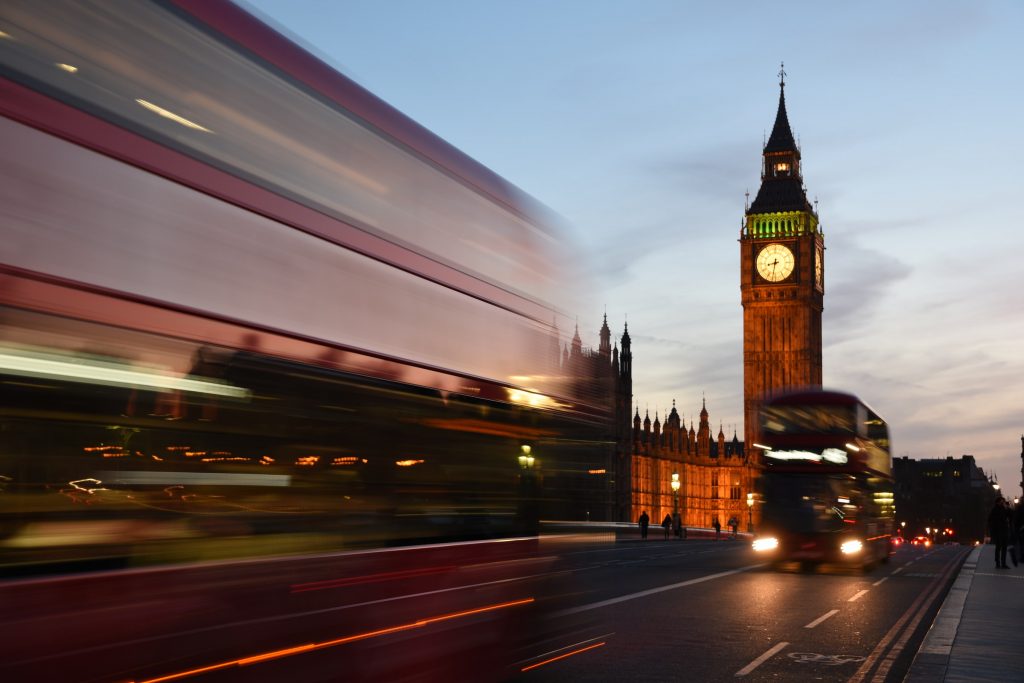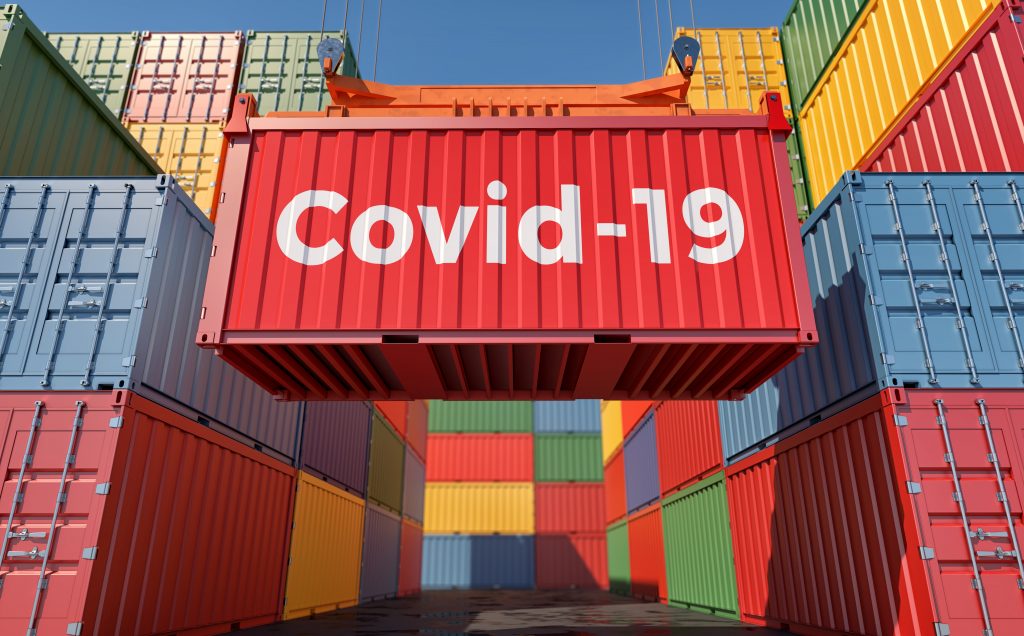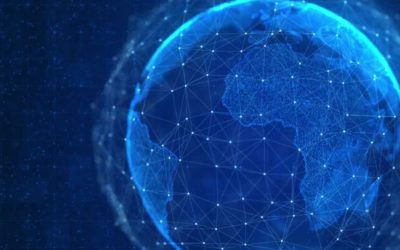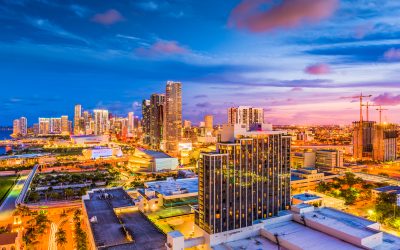The Sr. VP of OPS & Customer Service at Aerodoc Inc. claims that ‘the world is debating a new globalization’ where international trade will be more strictly regulated and talks about the effects of the pandemic, Brexit, and customs digitization.
According to Clarksons Research, the global fleet of merchant ships has surpassed 100,000 vessels and 2,148 air cargo flights take place every day. This nonstop flow of goods is the biggest evidence of globalization. But what does the world look like from the desk of a logistics expert operating in more than 170 territories?

One of such experts is Estefanía Sisatzky, the Senior Vice President of Operations and Customer Service at Aerodoc Inc., a leading company in the Importer and Exporter of Record (IOR/EOR) market that helps companies expand their global reach. Sisatzky has an MBA (USA), a Bachelor of International Trade (Argentina), and international certifications in Project Management (UK), Procurement, and Supply Chain. She has also taught Logistics & International Trade in several Argentinian universities and was an invited lecturer on Project Management Strategies in Logistics.
In a recent interview, Sisatzky shared her view of the logistics facing Brexit and the COVID-19 pandemic:
Your job is shipping goods between countries in more than 160 territories around the world. What does that world look like from your position?
By combining logistics with our work as an IOR/EOR, we can comprehensively assess each country’s trade matrix and understand the importer/exporter profile of each region and country. This has allowed us to follow the evolution of the global stage over the past ten years. Historically more flexible nations have become more protectionist, while others that had much stronger protectionist attitudes and were more isolated from global trade – or the globalized world – set out to increase their integration and lifted their barriers. You can see how a disruptive event like war can spark a chain reaction worldwide.
What kind of reaction?
What sparks a reaction here is each country’s protectionist/non-protectionist attitude. To do my job, I check if I have more or fewer regulations to comply with to import goods. If I dig a little deeper, I can see that there is a country protecting its national industry while another one is hitting back at a third nation for taking a given stand. It’s really interesting because the mere physical movement of goods lets us see the big picture regarding globalization.
Which countries and regions were protectionist in the past and have now opened to the world? And which ones did the opposite? Let’s take a specific example: Is the USA more open today than 20 years ago?
Broadly speaking, I dare claim that nations are rethinking globalization. I see a world that is less open to the concept of ‘free or easier movement of goods and people’ than 20 years ago. We are currently seeing a multipolar world and I think this trend will last. The USA is one of the leading poles; it took a strongly protectionist stand during the Trump administration and while it became a little more flexible later, it has not returned to its iconic position as a free-trade champion. Now the US is taking clear steps to align with the UN’s development goals while protecting local jobs, its industries, and its economy.
Why are countries isolating from the world?
There are three key aspects behind the decision to open or isolate from the world. Many countries disguise their protectionist measures behind three structures: the environment, the protection of local industries, and the protection of jobs. There are economic interests behind each of those three excuses.
Do you think that the environment is rather an excuse to promote protectionism?
You have an undeniable truth: Something must be done about it. We are all aware of that. This is on the agenda of governments and companies of all sizes. We will see a positive effect in the long term. If we look at it with a less sceptic or, let’s say, less philanthropic perspective, we may recognize major economic interests rallying behind nations such as China, Germany, and the US. Nevertheless, awareness campaigns, open debates, incentives for implementing eco-friendly policies, and other efforts are already having a positive impact on our daily lives, both on a small scale and in the big picture.
On a global scale, do you think the world is more protectionist now than ten years ago?
What I do see is that now you can tell faster if a country is protectionist or not. In the past, a country could take years to open its market – now they can do that or revert it instantly. Take Asia: several nations there now allow you to export tech freely, but new regulations may emerge and bring it all to a halt in, say, two weeks. It’s what we have seen in Mexico with the NOMs (Official Mexican Standards), or in other Latin American nations with the so-called ‘energy security’ – new protectionist legislation is passed overnight, sometimes disguised.
Two major events for logistics happened in recent years: Brexit and the pandemic. What is your take on the impact of Brexit?
Brexit was the first big indicator that free trade as a world order is changing and that its champions – the highest chairs in the World Trade Organization – are having doubts about its convenience. This stirred a debate about whether ‘pure’ globalization is actually useful or whether global regulation structures are needed for trade. Brexit’s actual impact on business was mostly about reorganizing things. As for international trade, mechanisms have been designed and implemented to keep trade flowing seamlessly while Brexit takes shape.

So, Brexit is actually more open than it seems?
Brexit has proven that a complete break between the United Kingdom and the European Union is not a feasible option for either of them. Because of that, we now have many ‘tricks’ to help the UK access the EU’s trade bloc. This concern has forced companies such as Aerodoc to do granular research on trade in the EU and its related corporate compliance. We had to perfectly understand how companies are incorporated to operate or file taxes on an EU member state to help our customers. Many of them were telling us: ‘I can no longer ship products to the UK and my entire business is there, what do I do?’ Our challenge was supplying the rest of their customer base in the UE, in what was previously a single trade bloc.
What about the pandemic? Why was it so impactful for international trade?
The pandemic had two major stages. In the first stage, everything came to a halt, impacting on everyone’s work routines. Then came the mid-term effects: shortages, supply chain disruptions, and the things we are seeing now.
What is the second stage?
We still have restrictions, but nothing like the lockdowns of two years ago. Port congestions are being cleared and now we do not have enough space to store all shipments. Shanghai’s port, for example, is releasing retained containers, which makes pricing harder due to excess inventories. In other words, during the first stage of the pandemic, we had supply chain disruptions due to input, manufacturing, and labor shortages, whereas today the problem is excess inventories and a shortage of storage space – containers get stuck at ports and there are pricing issues.

So this is a temporary thing and we should not have this problem in five years?
Yes. Most logistics issues are circumstantial. But it is hard to know when everything will be normal again because these events are too dynamic. These past few weeks, for instance, a big issue was the lockdown in China, where the world’s biggest ports are located. The new normal will be here as soon as we can handle the pandemic properly.
On another note, how is technology impacting on customs management and logistics as a whole? Do you see regional disparities?
While digital transformation was indeed promoted by the world’s richest nations, many initiatives are taking place in less developed countries. The World Customs Organization is strongly focusing on and promoting process digitization. This is not just about tech: you can’t overlook a country’s culture and infrastructure potential, not just when your shipment reaches the port but also when you are moving your goods through the country. In less-developed nations, connectivity is still a major challenge in terms of infrastructure, transportation, and the progress of digitization.
What do you see in Latin America and Africa?
Digitization has improved a lot in those regions and now there is more transparency, although you also see disparities. In fact, they still have time-consuming processes and sometimes customs in those regions have mandatory in-person procedures. Because of this, having a glocal partner – one with exceptional service levels and local agents on each territory – is so crucial.




